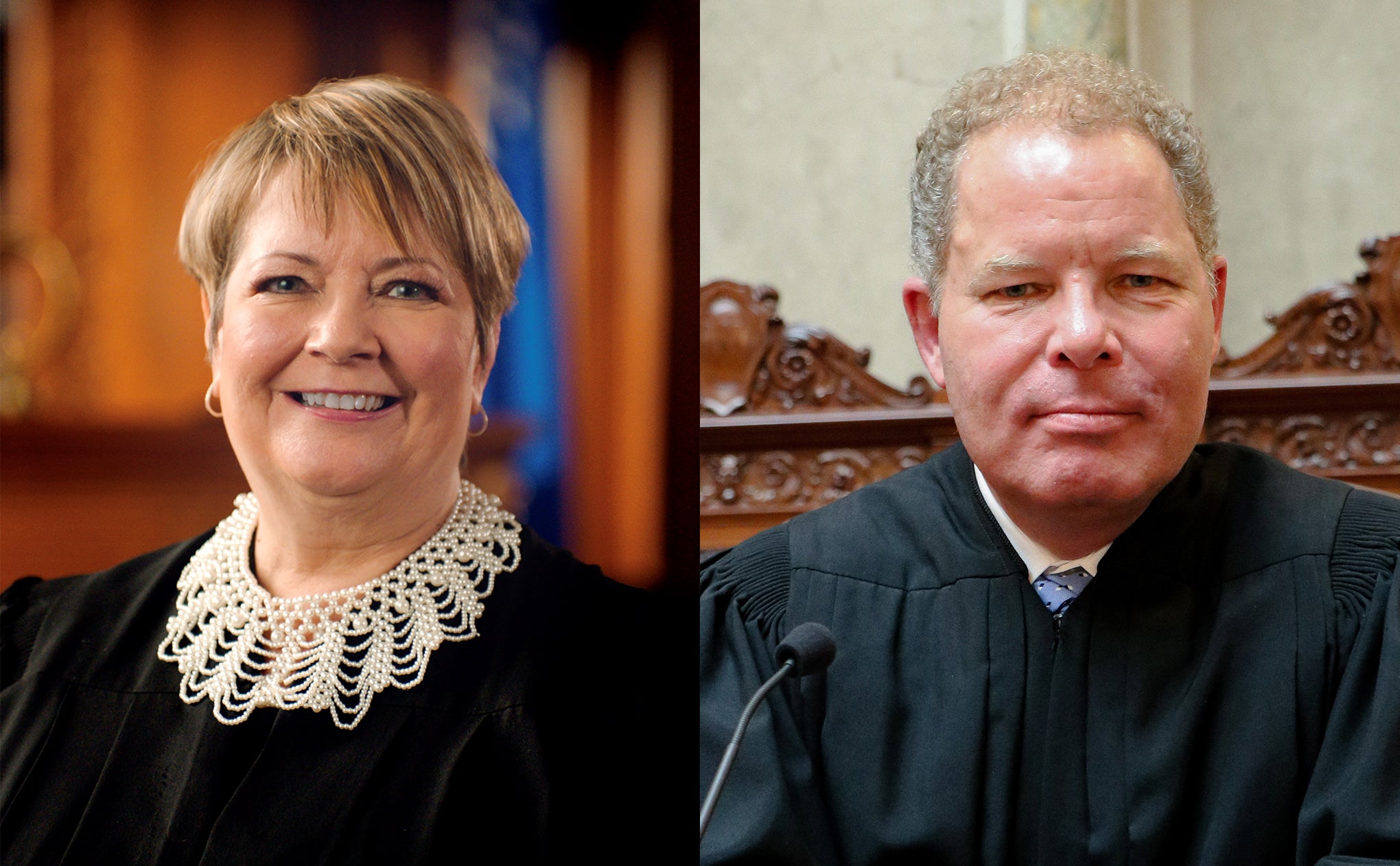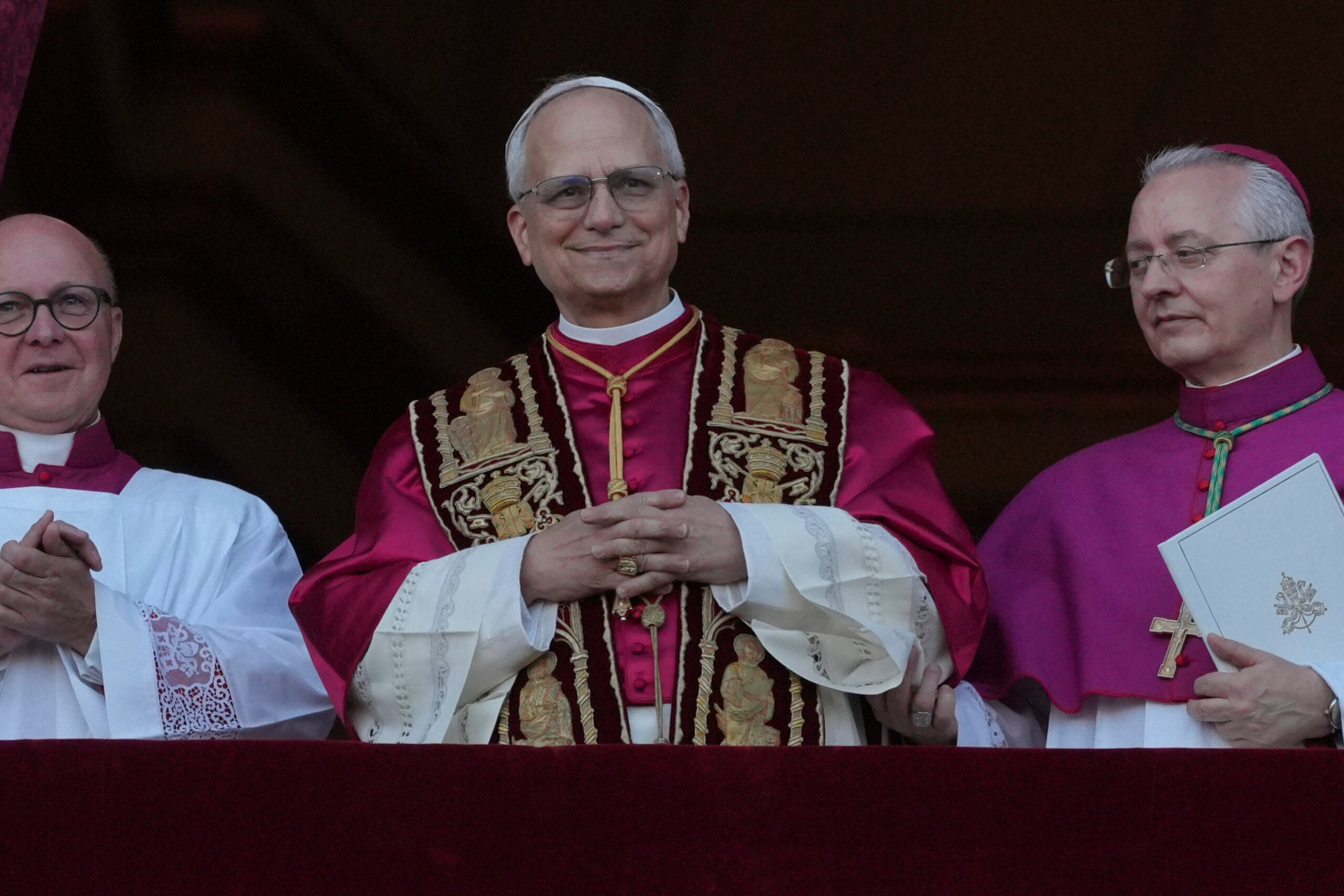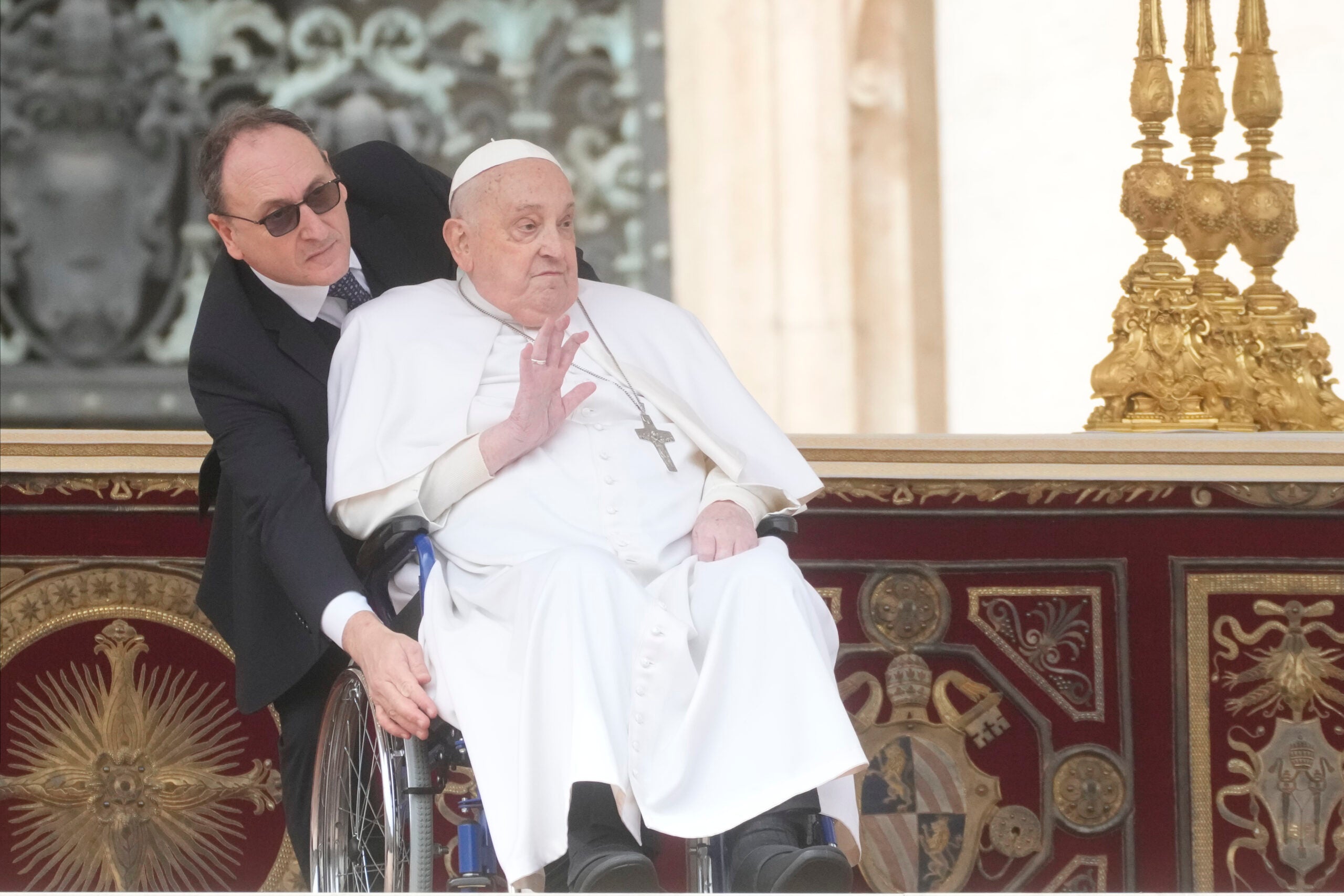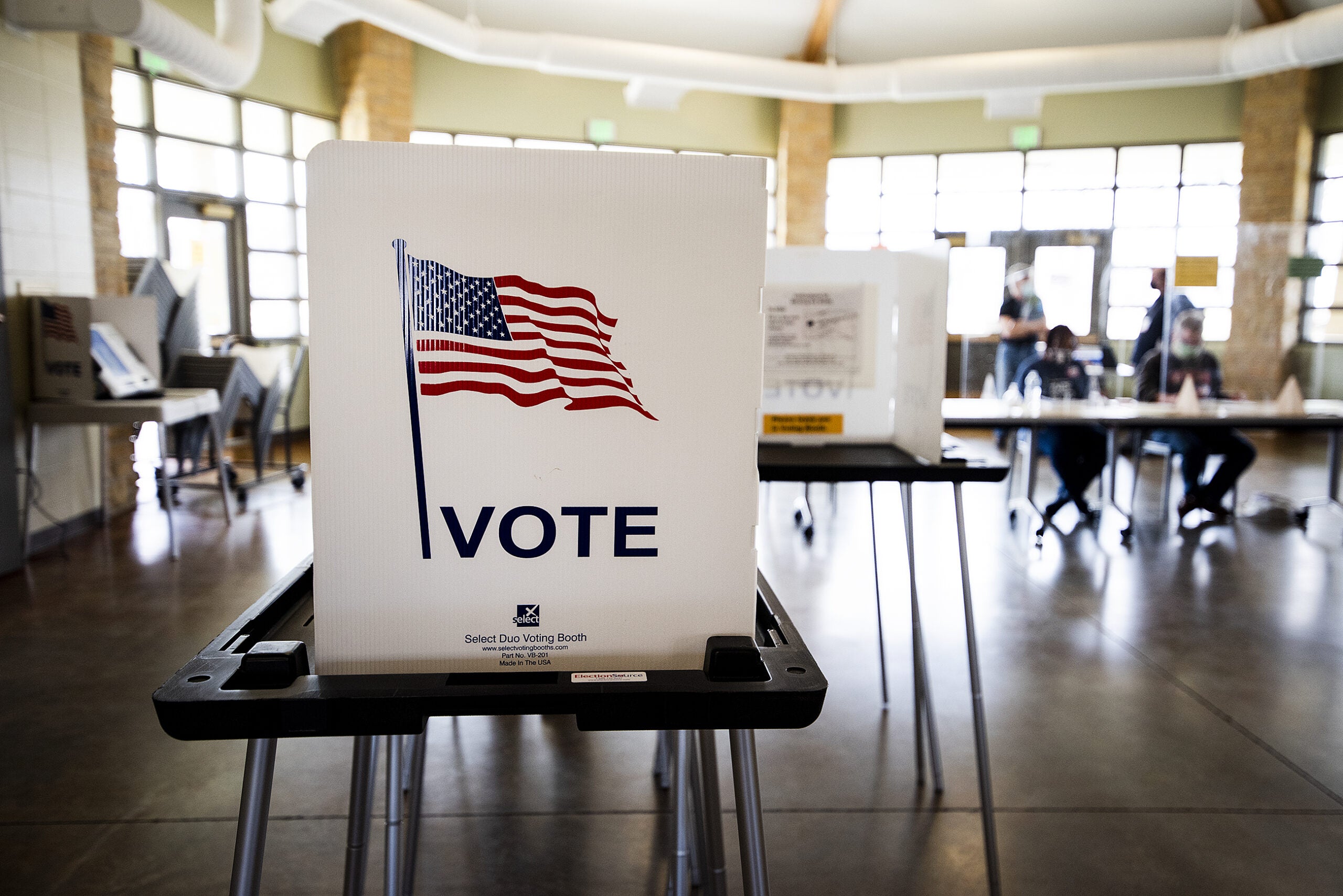A Dane County Catholic Church is facing criticism from national groups after a bulletin from its pastor urged the congregation not to vote for “her” in the upcoming Wisconsin Supreme Court election, referring to Janet Protasiewicz.
In doing so, the Freedom From Religion Foundation said the church, St. Patrick’s Catholic Church in Cottage Grove, engaged in illegal electioneering. The foundation sent a letter to the Internal Revenue Service notifying them of the incident.
Federal law says churches, which are exempt from paying taxes, are not allowed to endorse or oppose any political candidate for public office.
News with a little more humanity
WPR’s “Wisconsin Today” newsletter keeps you connected to the state you love without feeling overwhelmed. No paywall. No agenda. No corporate filter.
Rev. Brian Dulli posted the message in the church’s bulletin on Sunday. In it, Duli said it was a “mortal sin to render aid to the cause of abortion.”
“As a Catholic, I urge you, for the salvation of your soul; do not vote for her in the Supreme Court race on April 4,” the bulletin said.
Dulli didn’t mention Protasiewicz by name in the message, but she is facing Dan Kelly in Tuesday’s election and is the only woman in the highly-publicized election, in which the candidates’ differing views on abortion have been a central issue. Protasiewicz has been a vocal supporter of abortion rights during the campaign, while Kelly is endorsed by the state’s three anti-abortion groups.
Dulli didn’t respond to a request for comment.
A 2022 poll from the Pew Research Center found that about three-quarters of U.S. Catholics say abortion should be illegal in some cases but legal in others.The letter from the Freedom From Religion Foundation was sent on March 28 after the group said it was contacted by a “concerned citizen.”
“We write to respectfully request that the IRS immediately investigate St. Patrick’s Catholic Church and ensure that it no longer receives the benefits of 501(c)(3) status and that donations made to the church are no longer treated as tax deductible,” the letter said.
Andrew Seidel, vice president of strategic communications for Americans United for Separation of Church and State, said he believes the bulletin “very clearly crossed the line” into illegal electioneering.
“I’m not surprised to see it, especially in a divided, gerrymandered state like Wisconsin, but it is something that we see every single election cycle,” Seidel said.
Seidel said Americans United for Separation of Church and State see a rise in similar violations ahead of every election cycle. But he said the violations have “spiked” in recent years.
“I think with the rise of Christian nationalism, we are also seeing American churches and houses of worship divided more along political lines than we’ve seen in the past,” Seidel said.
A 2017 Pew Research Center poll found that the majority of Americans don’t want churches to endorse political candidates.
“Nobody really wants our nonprofits or our houses of worship to be torn apart by campaign politics or to be transformed into political tools,” Seidel said.
Still, pastors of churches across the political spectrum may skirt the line and sometimes disregard it. In Wisconsin, when Republican lawmakers restricted early voting, some critics charged that it was a response to the “Souls to the Polls” initiatives of Black churches in Milwaukee. Organizers of Souls to the Polls events say they don’t seek to influence participants’ votes. By law, members of religious organizations are able to speak about and discuss political issues provided they don’t endorse specific candidates.
The Freedom From Religion Foundation files “dozens” of letters to the IRS each year, said foundation attorney Chris Line, alerting them to churches taking political stances during elections. But Line doesn’t believe the IRS has been enforcing the issue as much as they could be.
“Churches shouldn’t be allowed to break the rules just because they’re churches,” Line said.
A spokesperson for the IRS didn’t comment on the case, but did point a reporter to the online “Tax Guide for Churches & Religious Organizations.”
Although that guide makes no specific mention of bulletins, it does mention church newsletters, which are similar to bulletins. The guide said endorsements are not allowed to be made in newsletters, because it’s an official publication of the church.
Scott Idleman is a professor of law at Marquette University. He believes this was a clear case of illegal electioneering by the church. But he said the IRS doesn’t always follow up on the cases.
“It’s easy on the legality — what tends to be a lot less clear is IRS follow up,” Idleman said.
Idleman said if the IRS does decide to prosecute the case, it could take away the tax-exempt status of the church. But that’s something the church could re-apply for in the future.
Rev. Paul Brandeis Raushenbush, the CEO and president of the Interfaith Alliance, sent a statement to WPR regarding the incident.
“Religious leaders and other officials may take a stance on important issues facing their community, as long as they do not favor one candidate or party,” he said. “That is where St. Patrick’s Catholic Church crossed the line — by urging parishioners to vote against a specific candidate in Wisconsin’s Supreme Court race. … Ultimately, these laws preserve the integrity of both government and religion, as well as our democracy writ large, shielding houses of worship from becoming mere tools of politics or succumbing to external influence and priorities of federal, state or local governments.”
Wisconsin Public Radio, © Copyright 2026, Board of Regents of the University of Wisconsin System and Wisconsin Educational Communications Board.







